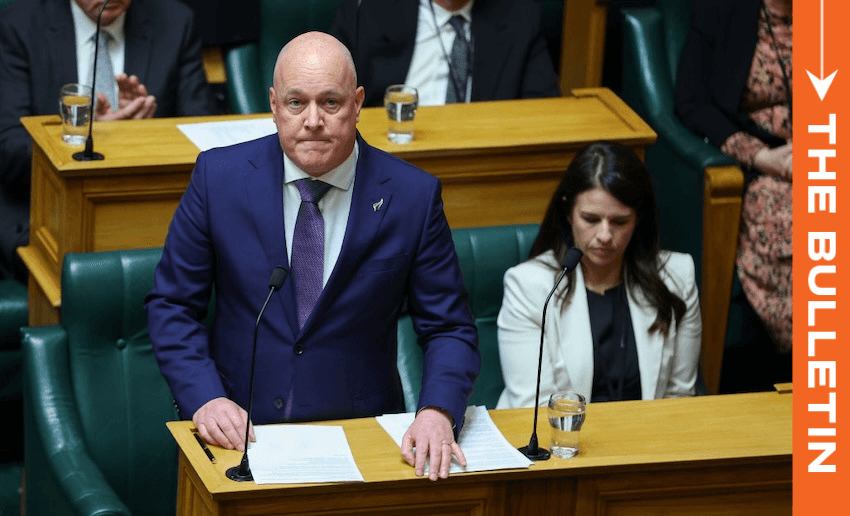The latest Ipsos Monitor survey reveals National has lost the public’s trust across almost every major issue, writes Catherine McGregor in today’s extract from The Bulletin.
To receive The Bulletin in full each weekday, sign up here.
Ipsos survey makes grim reading for National
The latest Ipsos Issues Monitor is brutal reading for National – and for Christopher Luxon personally. As Russell Palmer reports for RNZ, the government received a performance score of just 3.9 out of 10 – the lowest since the survey began in 2017. Nearly half of respondents rated the government between 0 and 3. Labour was seen as the best manager of 15 of the top 20 issues, including cost of living, healthcare, the economy, housing and unemployment. National led on only two: crime/law and order, and defence/foreign affairs/terrorism.
For a party that has long relied on its economic credentials, the reversal on the cost of living is particularly stark: on the question of which party is best equipped to address the issue, Labour is now ahead by 12 points – a huge reversal from February 2024 (the first Ipsos survey after the election), when Labour trailed National by 16.
O’Brien: voters are sending a clear warning
Writing in Stuff, Tova O’Brien argues that Luxon can no longer dismiss negative polls as irrelevant: “The Ipsos Monitor is all about perception. The cost of living crisis is all about reality. Losing on both counts is a political death sentence.” While the recent Talbot Mills and Curia polls were bad for National, the Ipsos survey is much worse, because it measures trust on the issues that hit voters hardest. With Labour leading on the cost of living, the economy and taxation (“yes, taxation”), “the three things National promised to be best at, it is failing at in the eyes of voters”. While acknowledging that there’s still time for a turnaround before next year’s election, O’Brien says the shift in voter sentiment, consistent across multiple polls, indicates growing doubt that National can deliver on its core promises.
Coughlan: little appetite for leadership change
In the Herald (paywalled), Thomas Coughlan agrees that National’s failure to convince voters in areas it’s traditionally strongest should be a flashing warning sign for the government. “It is very difficult to see a situation in which a National Party that is not trusted on the economy is able to win an election next year,” he writes.
The string of dire polls has brought Luxon’s leadership to “an inflection point”, Coughlan writes, yet a challenge remains unlikely. MPs fear a repeat of the turmoil of the 2020 leadership coup, and while many of them believe someone else would be a better leader, they’re not certain “whether that leader is so clearly superior they’re worth rolling a sitting Prime Minister for”. Other factors creating hesitancy include signs that the economy is finally turning a corner – with better polling likely as a result – and the fact that “outside of Labour, the putative alternative Government is a mess”, reducing external pressure for a change.
Key’s lessons for Luxon
In his analysis, Coughlan spends many paragraphs contrasting Luxon’s current troubles with John Key’s ability to maintain public confidence during the bleak economic years of 2011-12. Conditions then were, in several respects, worse than they are today, yet Key’s preferred prime minister ratings remained in the 40s and 50s. Coughlan argues that while Key benefited from luck – inflation was low, the opposition was “a mess” – he also had a talent for communication that Luxon sorely lacks. Key “had an ability to acknowledge when things were going terribly and talk about what he was doing to fix them” and, partly as a result, “voters had enough faith in Key and his Government to suffer through some astonishingly difficult economic times”.
By the time of his third win in 2014, Key’s approval was around 70%, making him, as Jonathan Pearlman wrote in a glowing piece for the UK Telegraph, “officially… the most popular leader in the Western world”. Luxon, faced with an electorate sceptical of both his current performance and promises for the future, has yet to find the same connection.
Subscribe to +Subscribe

